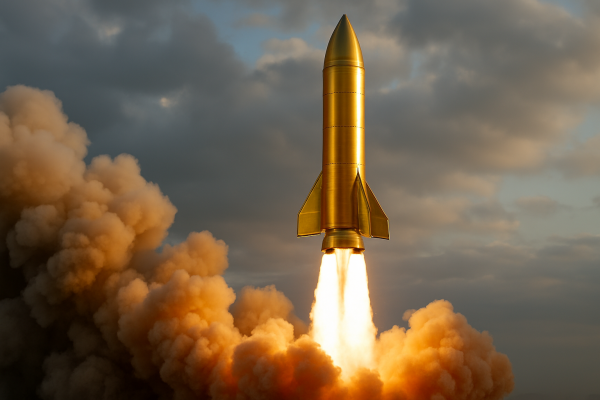February 2nd, 2024 | 07:15 CET
BYD, Edison Lithium, Siemens Energy - Which energy transition stocks are worth considering now
The global energy transition is being shaped by key players in electromobility and renewable energies. The Chinese car manufacturer BYD continues its expansion in Europe with a new production facility for passenger cars in Hungary. BYD also focuses on sodium-ion batteries as an alternative to lithium-ion batteries for budget and mid-range models. The junior explorer, Edison Lithium, plays a decisive role here in the procurement of raw materials for battery production. Edison Lithium can meet the demand for raw materials for sodium-ion batteries with flying colours and is using this strategic move to its advantage. Edison Lithium's sites are all located in Argentina, which is back on the geopolitical trading floor thanks to its new president, Javier Milei. Siemens Energy, on the other hand, posted solid quarterly results despite ongoing challenges at offshore wind turbine problem child Siemens Gamesa. The Company is increasingly breaking away from its former parent company, Siemens, and will appoint two high-calibre individuals to the Supervisory Board to drive the transformation further.
time to read: 5 minutes
|
Author:
Juliane Zielonka
ISIN:
BYD CO. LTD H YC 1 | CNE100000296 , Edison Lithium Corp | CA28103Q2080 , SIEMENS ENERGY AG NA O.N. | DE000ENER6Y0
Table of contents:

"[...] China's dominance is one of the reasons why we are so heavily involved in the tungsten market. Here, around 85% of production is in Chinese hands. [...]" Dr. Thomas Gutschlag, CEO, Deutsche Rohstoff AG
Author
Juliane Zielonka
Born in Bielefeld, she studied German, English and psychology. The emergence of the Internet in the early '90s led her from university to training in graphic design and marketing communications. After years of agency work in corporate branding, she switched to publishing and learned her editorial craft at Hubert Burda Media.
Tag cloud
Shares cloud
BYD strengthens its pioneering role in electromobility with new vehicle production facility in Hungary and focuses on sodium-ion batteries
The Chinese car manufacturer BYD is the undisputed pioneer in the electromobility market, even as the EU (link: https://www.reuters.com/business/autos-transportation/eu-investigators-inspect-chinas-byd-geely-saic-ev-probe-source-2024-01-12/ text: tries to regulate its market power. BYD (ISIN CNE100000296) has now established a passenger car production site in Hungary. The contract was signed this week, and the factory is expected to be completed and operational within the next three years. The facility will focus on producing passenger car models for the European market, creating thousands of local jobs, and helping Hungary transition to a green economy. BYD has opened 230 outlets in 19 countries since launching its passenger car business in Europe. Five new models (BYD HAN, BYD TANG, BYD ATTO 3, BYD SEAL and BYD DOLPHIN) have been launched, covering segments from C to E, including compact cars, sedans and SUVs. Three more models are planned for the next 12 months.
BYD built its first European factory for all-electric buses in Hungary seven years ago and is now adding the passenger car production line. In addition to mainland China and plants in Europe, electric vehicle factories have been established in Uzbekistan, Thailand, Brazil, Hungary and Indonesia, underlining BYD's strategic focus on global expansion and localization in major markets worldwide. BYD focuses on sodium-ion batteries, as sodium is available in larger quantities than lithium.
The focus on cars in the budget and mid-range segment is advantageous for BYD, as this area holds enormous potential for electromobility. Compared to established brands, BYD is said to have a clear advantage in terms of rapid availability, as the German market is currently characterized by long delivery times due to supply bottlenecks.
CEO Nathan Rotstein of Edison Lithium sees future in sodium-ion technology as the answer to rising lithium demand
Renewable energy remains the focus of efforts across Europe to meet the European Commission's Green Deal requirements. However, raw material prices and geopolitical tensions are making implementation more difficult. The German economy, in particular, is feeling the harsh impact of rising energy prices.
Global demand for lithium carbonate is expected to reach 1.79 million tons by 2030. The growing influence of electromobility, in particular, will significantly increase the demand for batteries and, therefore, also for lithium. BYD is leading the way. Lithium reserves in China are dwindling, and the search for new resources and the development of technologies for extracting lithium from brine is proving to be extremely challenging. Global lithium production has increased due to increased production in salt basins and improved capacities in mines.
This is where the Canadian explorer Edison Lithium (ISIN CA28103Q2080) comes into focus. Edison Lithium is a Canadian junior mining exploration company focused on the sourcing, exploration and development of cobalt, lithium and other energy metal properties. The Company has more than 148,000 hectares of mineral-rich land in Argentina. Cobalt is a key element in the production of lithium-ion batteries used in electric vehicles, portable electronic devices such as smartphones and laptops, energy storage systems and other applications. Cobalt is often used in the cathode of these batteries.
However, Edison Lithium CEO Nathan Rotstein sees the true potential in a different combination of battery technology: *sodium-ion batteries instead of lithium-ion. "BYD, the world's largest electric vehicle manufacturer, already offers three models of NA-ION battery vehicles for sale*," explains Rotstein.
The clear advantages over conventional lithium-ion batteries are evident. Sodium, the sixth most abundant element on Earth, is globally available, and its extraction is simpler and more environmentally friendly. Compared to lithium, sodium is easier to recycle. Therefore, the demand for sodium-ion batteries will continue to rise, both in electric vehicles and in the areas of energy and grid storage.
Siemens Energy with impressive quarterly results: Total profit of EUR 1.88 billion, despite ongoing challenges at Siemens Gamesa
Despite ongoing losses at its Spanish subsidiary Gamesa, Siemens Energy (ISIN DE000ENER6Y0) generated an operating profit of EUR 208 million in the first quarter of 2023/24, compared to a loss of EUR 282 million in the same period of the previous year. Sales rose by 15% to EUR 7.6 billion and incoming orders by as much as 24% to EUR 15.4 billion. The business with electricity and gas grids is showing strong growth.
Siemens Energy reports a total profit of EUR 1.88 billion, mainly due to the sale of shares in the Indian subsidiary and the sale of the high-voltage components division, Trench Electric, to Triton. The loss from wind power problem child Siemens Gamesa was reduced to EUR 426 million. The Company is still struggling with quality deficiencies and startup difficulties. Gamesa is expected to post a loss of around EUR 2 billion for the year as a whole. A cost-cutting program aims to reduce costs by EUR 400 million.
The former parent company Siemens is planning to further reduce its stake in Siemens Energy, as CEO Roland Busch announced in remarks prepared for the upcoming Annual General Meeting. With this reduction, Siemens Energy is aiming to reduce its dependence on the former parent company Siemens. To this end, he is also appointing two renowned experts to the Supervisory Board. Veronika Grimm, economist, and Simone Menne, former CFO of Lufthansa, are to be elected to the Supervisory Board at the Annual General Meeting on February 26, as the energy technology group announced on Thursday.

BYD consolidates its pioneering role in the electric mobility market with a new passenger car factory in Hungary, a strong presence in Europe and a focus on sodium-ion batteries. BYD plans to create local jobs and promote the green economy in Hungary. Further expansion in the budget and mid-range segment is also planned. With the increased use of lithium batteries in electric vehicles and energy storage systems, raw material energy sources are becoming increasingly important players in the global supply mix. Edison Lithium focuses on sodium-ion batteries and is positioning itself in response to the increasing demand for lithium. CEO Nathan Rotstein emphasizes the potential of sodium-ion batteries, which stand out from lithium-ion batteries due to their availability, ease of extraction and environmental friendliness. Edison Lithium focuses on raw material extraction, primarily cobalt, strengthening its position in the energy market. Siemens Energy reports an operating profit of EUR 208 million in the first quarter of 2023/24 despite continued losses at Siemens Gamesa - revenue increased by 15% to EUR 7.6 billion and order intake by 24%. Siemens Energy plans to reduce its stake further to reduce its dependence on Siemens. The stock market reacted positively to the figures, with Siemens Energy shares rising 10%. Analysts at JP Morgan emphasize that sales and order intake have exceeded expectations, strengthening confidence in the forecast. Investors should closely monitor raw material sources and suppliers when selecting for their portfolio.
Conflict of interest
Pursuant to §85 of the German Securities Trading Act (WpHG), we point out that Apaton Finance GmbH as well as partners, authors or employees of Apaton Finance GmbH (hereinafter referred to as "Relevant Persons") may hold shares or other financial instruments of the aforementioned companies in the future or may bet on rising or falling prices and thus a conflict of interest may arise in the future. The Relevant Persons reserve the right to buy or sell shares or other financial instruments of the Company at any time (hereinafter each a "Transaction"). Transactions may, under certain circumstances, influence the respective price of the shares or other financial instruments of the Company.
In addition, Apaton Finance GmbH is active in the context of the preparation and publication of the reporting in paid contractual relationships.
For this reason, there is a concrete conflict of interest.
The above information on existing conflicts of interest applies to all types and forms of publication used by Apaton Finance GmbH for publications on companies.
Risk notice
Apaton Finance GmbH offers editors, agencies and companies the opportunity to publish commentaries, interviews, summaries, news and the like on news.financial. These contents are exclusively for the information of the readers and do not represent any call to action or recommendations, neither explicitly nor implicitly they are to be understood as an assurance of possible price developments. The contents do not replace individual expert investment advice and do not constitute an offer to sell the discussed share(s) or other financial instruments, nor an invitation to buy or sell such.
The content is expressly not a financial analysis, but a journalistic or advertising text. Readers or users who make investment decisions or carry out transactions on the basis of the information provided here do so entirely at their own risk. No contractual relationship is established between Apaton Finance GmbH and its readers or the users of its offers, as our information only refers to the company and not to the investment decision of the reader or user.
The acquisition of financial instruments involves high risks, which can lead to the total loss of the invested capital. The information published by Apaton Finance GmbH and its authors is based on careful research. Nevertheless, no liability is assumed for financial losses or a content-related guarantee for the topicality, correctness, appropriateness and completeness of the content provided here. Please also note our Terms of use.




